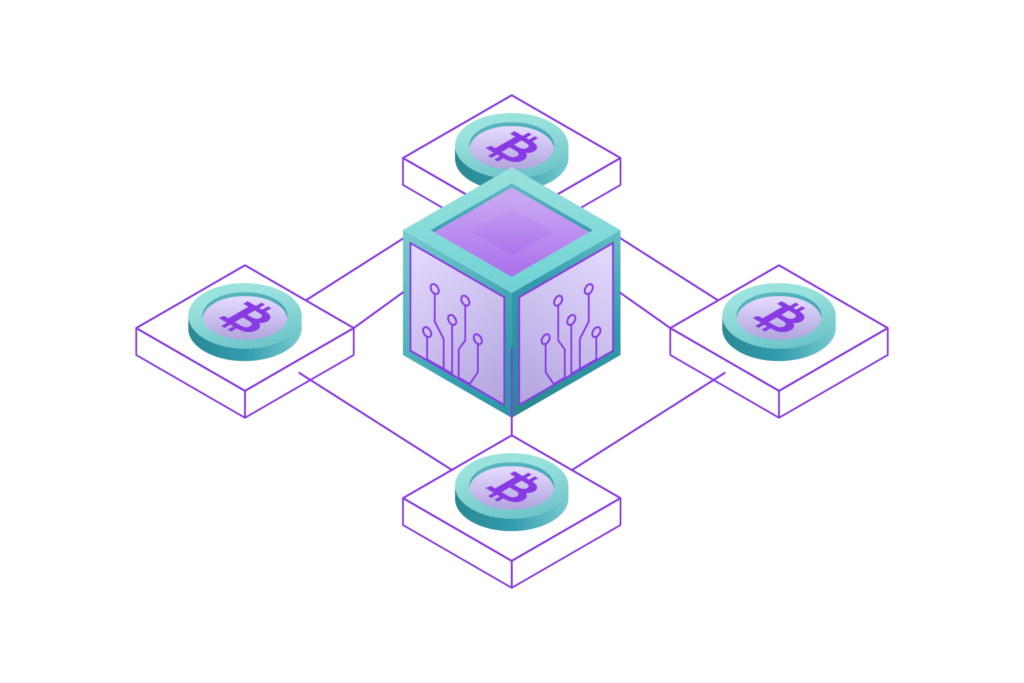What Is The Role Of Decentralization In Blockchain Technology
The concept of decentralization has been revolutionary in shaping the world of blockchain technology. Imagine a system where data is not controlled by a single entity, but rather shared among a network of computers, working together in harmony to validate and record transactions. This is exactly what blockchain technology offers, and decentralization plays a vital role in making it all possible.

- Streamlining Business Operations With Smart Contracts: A Step-by-Step Guide
- What Is A Hash Rate In Crypto Mining And Why Is It Important
- Unlocking The Potential Of Crypto In The Sharing Economy
- Unlocking The Secrets Of Bitcoin Mining: A Beginner’s Journey
- Embracing Transparency: How Blockchain Revolutionizes Secure Financial Transactions
So, what exactly is decentralization in the context of blockchain? In simple terms, decentralization refers to the distribution of power, control, and decision-making authority among multiple nodes in a network. In a traditional, centralized system, a single entity has complete control over the data and decision-making process. However, in a decentralized system, no single entity has control over the network. Instead, decision-making authority is distributed among multiple nodes, which work together to validate and record transactions.
The role of decentralization in blockchain technology is multifaceted. Firstly, it ensures that the network is resilient and fault-tolerant. Since no single entity controls the network, a failure in one node does not bring down the entire system. Instead, the other nodes in the network can continue to function, ensuring that the system remains operational.
Secondly, decentralization promotes transparency and accountability. All transactions on a blockchain network are recorded on a public ledger, which is visible to all nodes in the network. This ensures that all nodes have access to the same information, and any attempt to manipulate or alter the data is immediately detectable.
Thirdly, decentralization enables greater security. Since the network is not controlled by a single entity, the risk of a single point of failure is eliminated. Hackers would need to compromise multiple nodes in the network to manipulate the data, which is virtually impossible.
Lastly, decentralization promotes democratization. By distributing control and decision-making authority among multiple nodes, blockchain technology enables greater participation and inclusivity. Anyone with an internet connection can participate in the network, regardless of their location or socio-economic status.
However, decentralization is not without its challenges. One of the biggest challenges is scalability. Since all nodes in the network need to validate and record transactions, the process can be slow and inefficient. Additionally, the lack of a central authority can make it difficult to resolve disputes and ensure compliance with regulations.
In conclusion, decentralization is a critical component of blockchain technology. It promotes resilience, transparency, security, and democratization. While it presents several challenges, the benefits far outweigh the drawbacks. As blockchain technology continues to evolve, it will be exciting to see how decentralization continues to play a vital role in shaping the future of the internet.
The concept of decentralized governance is also becoming increasingly important in blockchain technology. Decentralized governance refers to the decision-making process by which changes are made to the blockchain protocol. In a decentralized system, decision-making authority is distributed among multiple stakeholders, ensuring that changes are made in a transparent and inclusive manner.
Furthermore, decentralized finance (DeFi) is also becoming increasingly popular. DeFi refers to the use of blockchain technology to create decentralized financial systems, such as lending platforms, stablecoins, and decentralized exchanges. By leveraging decentralization, DeFi enables greater access to financial services, greater transparency, and greater security.
In addition, decentralized data storage is also becoming increasingly important. Decentralized data storage solutions, such as InterPlanetary File System (IPFS), enable users to store and share data in a decentralized manner. By leveraging decentralization, these solutions promote greater security, greater transparency, and greater control over data.
Overall, decentralization is a critical component of blockchain technology. It promotes resilience, transparency, security, and democratization. As blockchain technology continues to evolve, it will be exciting to see how decentralization continues to play a vital role in shaping the future of the internet.
The use of decentralized technology is not limited to blockchain. Other technologies, such as peer-to-peer networks and distributed computing systems, also leverage decentralization. However, blockchain technology has taken decentralization to a whole new level. By leveraging decentralization, blockchain technology has created a new paradigm for the way we think about data, security, and decision-making.
In the future, we can expect to see even more innovative applications of decentralization. From decentralized artificial intelligence to decentralized IoT networks, the possibilities are endless. As technology continues to evolve, it will be exciting to see how decentralization continues to shape the world around us.
In conclusion, decentralization is a powerful technology that has the potential to transform the way we think about data, security, and decision-making. By leveraging decentralization, blockchain technology has created a new paradigm for the way we think about the internet. As technology continues to evolve, it will be exciting to see how decentralization continues to play a vital role in shaping the future of the world.
